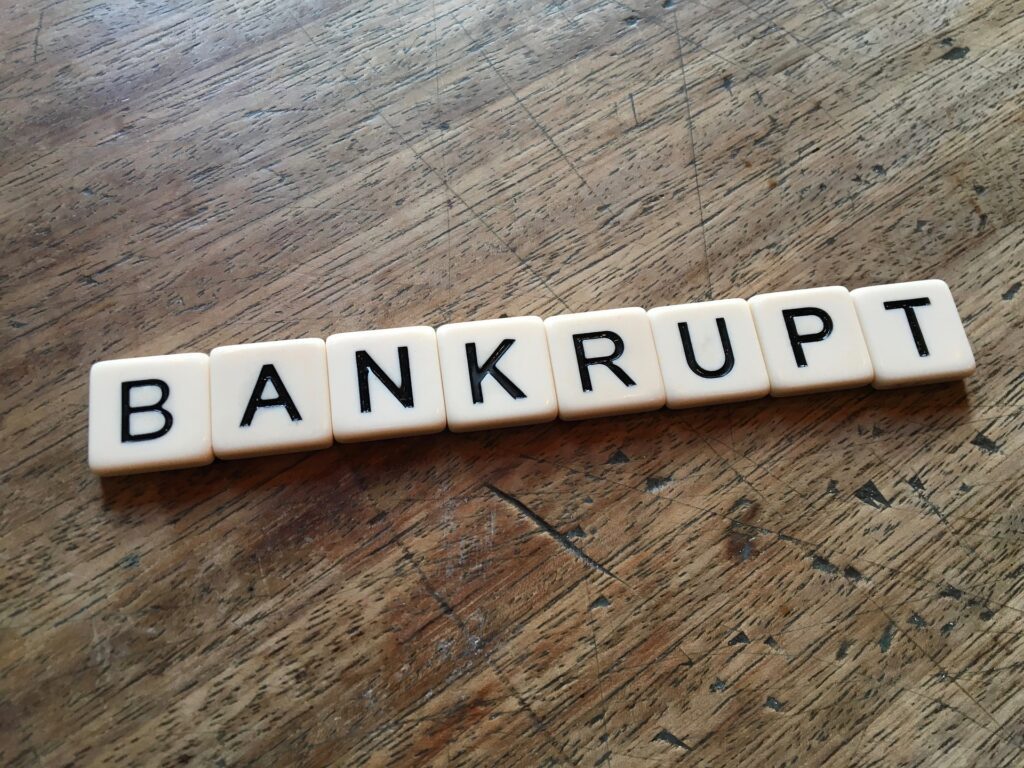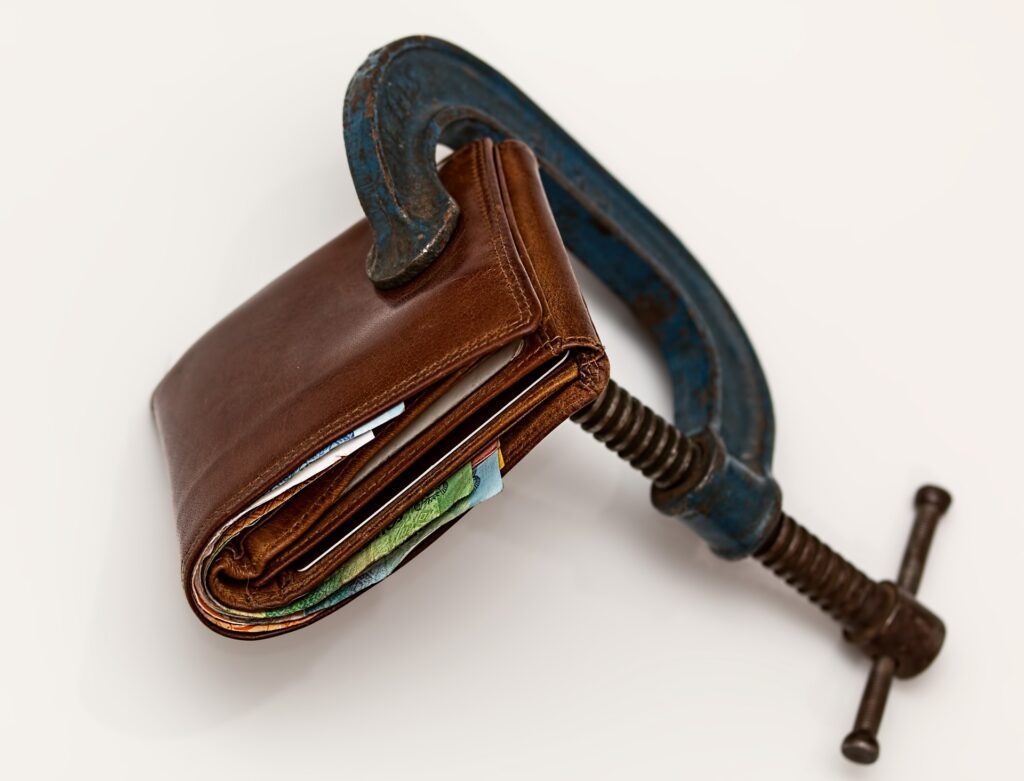Chapter 13 Bankruptcy Dismissed! — Now What?
Have you filed Chapter 13 personal bankruptcy and had your case dismissed? If the answer is yes, this information is for you! It does not apply to people who filed under Chapter 7 or to business bankruptcies filed under other Chapters of the code.
Please also note that my purpose here is not to provide a basic primer on how Chapter 13 works. For reliable basic information, please visit Nolo.com’s page on this type of bankruptcy.
In what follows, I assume that you ALREADY filed your Chapter 13 bankruptcy petition in the past and therefore already have a basic understanding of how it works.
The court dismissed your Chapter 13 bankruptcy case, meaning the plan has failed. What do you do next? That’s what I’ll try to help you understand in this and the next few pages.
IMPORTANT JARGON: Dismissal is not the same thing as Discharge! Briefly, a Discharge means you successfully completed the bankruptcy plan to the satisfaction of the court. Dismissal means the opposite, that you have FAILED to complete the Chapter 13 plan.

Hello Lawsuit Risk! — No More Collection Stay after Dismissal
Like most people who file bankruptcy due to financial stress, you probably felt pretty bad emotionally about having to do it. However, at least it brought the peace of mind of knowing that none of your creditors could bring collection lawsuits against you.
That’s because filing a bankruptcy petition puts an automatic “stay” on any further collection activity by creditors, including the use of the courts to file lawsuits for recovery on collection accounts. In fact, one of the main reasons people file bankruptcy is to put a stop to collection lawsuits, whether they have already been filed or are being threatened by collection attorneys.
Unfortunately, once your Chapter 13 bankruptcy is dismissed by the court the automatic stay is no longer in force. This means it’s hunting season against you all over again. Creditors are no longer blocked from trying to recover money from you via court judgments. And judgments can lead to garnishment of wages, liens on property, or levy of non-retirement bank accounts. So the fear experienced by many consumers after having their bankruptcy case dismissed can be very intense.
The 3 Key Reasons Why People File Under Chapter 13 Instead of Chapter 7
Chapter 7 bankruptcy is designed to fully discharge unsecured debts, and the total outlay by the debtor is usually just the attorney’s fees and court filing fees, say, around $2,000 or so, with the creditors usually receiving nothing back.
Chapter 13, on the other hand, involves a prorated amount being returned to the creditors over the 5 years of the plan, with the payment determined by the court. It’s common to see plans that entail 80% to 100% repayment on credit card debts or other unsecured obligations.
Given the above facts, why in the world would anyone file under Chapter 13?
There are three main reasons:
(1) Income is too high to be eligible for debts to be discharged under Chapter 7.
(2) Assets that do not qualify for exemption under the bankruptcy code would have to be liquidated and then paid to creditors.
(3) Foreclosure actions on real estate can be halted via Chapter 13 but not under Chapter 7.

The 4 Main Reasons Chapter 13 Bankruptcy Cases Get Dismissed
(1) Conversion to Chapter 7 —
Sometimes a Chapter 13 plan can be converted to a straight bankruptcy under Chapter 7. The most common situation in which this might happen is one where the debtor was working at the time of filing but making too much to be eligible for Chapter 7 approval. If the income that the plan was originally based upon goes away, then it’s often possible to petition the court to convert the Chapter 13 plan to a Chapter 7 plan. This would entail the court dismissing the uncompleted Chapter 13 case and replacing it with the new petition under Chapter 7.
(2) House situation has stabilized —
If the Chapter 13 plan was initially filed for the purpose of halting a foreclosure action on a house, and that situation has now become stabilized through repayment of arrears or a loan modification, then keeping the Chapter 13 case active may no longer be necessary.
(3) Self dismissal due to improved financial circumstances
In some instances, people voluntarily dismiss their own Chapter 13 case. Rather than getting kicked out of the plan due to nonpayment, someone might choose to bail out of a bankruptcy plan. Perhaps they have had a major change in financial circumstances and no longer want to be involved in a bankruptcy case. These may be consumers who have received large bonuses from work, significant windfalls due to family inheritances, changed to a higher paying job, or many other reasons. If the option now exists to simply pay off the debts and be fully in charge of one’s financial affairs again, that is the choice made by many consumers.
(4) Nonpayment
Compared to the three reasons cited above, by far the single most common reason Chapter 13 cases get dismissed is due to failure to maintain the required monthly payments on the plan.
Chapter 13 Bankruptcy Dismissed — Why Do So Many Cases Fail?
It’s difficult to obtain accurate data on Chapter 13 outcomes. But one commonly cited statistic in the bankruptcy industry is that about 2 out of every 3 filers fail. They do not finish all the plan payments. So we’re talking about a dirty secret here . Attorneys make lots of money filing these Chapter 13 case petitions, often $3,500 or more per case filing. Yet 66% of their customers fail to get the relief sought.
Why do these plans fail so often? Mainly because they are too inflexible and last far too long, that’s why! Although some Chapter 13 petitions are for 36 months, the vast majority of cases are set for 60 months.
Folks, five years is a LONG TIME to keep up with a large fixed payment set by the court. It’s all based on how much the court decides you can afford per month. Life happens, something unexpected comes up, and it’s no longer feasible to continue the court plan. The result is dismissal of your bankruptcy petition and the end of the court’s automatic stay against further collection actions.


